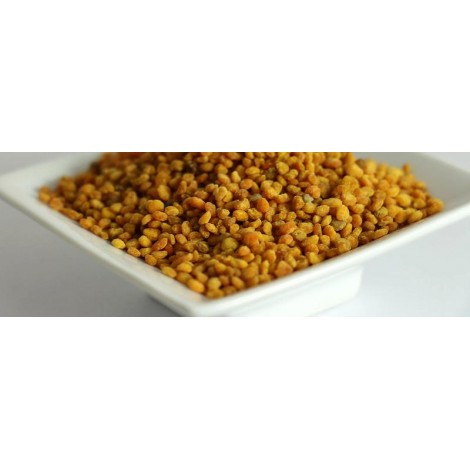




Propolis tropical fruits
Propolis is a resinous substance that bees collect from the buds of trees.
Red, green, black... There are several types with different benefits: to soothe a wart, a sore throat, acne? In what form should it be used, can it be used by children and pregnant women?
Propolis: Instructions for use
What is propolis and what is it used for?
Propolis is an amber-coloured resinous substance that bees collect from the buds and bark of certain trees. Propolis is enriched with salivary secretions and beeswax during its production. It is used as a 'filler' to line the inside of the hive to insulate and sanitise it.
Etymologically, "propolis" means "before the city", as this substance reduces the openings of the hive before winter. It thus prevents the development of micro-organisms (bacteria, viruses, moulds). Bees also use propolis to repair cracked combs or to embalm the bodies of intruders.
Composition of propolis
"Propolis is mainly made of resins (50%), essential oils (5 to 10%), wax (30 to 35%) and some pollen grains (5%). It contains about 300 active molecules, including antiviral, antibacterial and antitumour compounds, which give it a beneficial therapeutic potential for humans".
The composition of propolis varies according to its geographical origin and the flora it contains. Depending on its origin, propolis contains higher or lower concentrations of polyphenols, flavonoids and artepillin C with notable anti-cancer properties. All propolis has very powerful antioxidant effects and has a specific action on bacteria and viruses.
Types of propolis: green, black, brown...
Poplar propolis, brown to yellow in colour, against warts: collected in France and Europe. Its antibacterial action acts quickly. It is used in small doses because it is potent. It quickly relieves minor winter worries and skin imperfections (warts). It can be found in the form of syrup, alcoholic extract, spray, ointment, etc.
Green propolis from Brazil, against fungus and cancer cells: collected by bees from the "field rosemary" (Baccharis dracunculifolia). This plant is known for its high terpenoid content, which has a strong anti-inflammatory effect. This plant also synthesises a derivative of cinnamic acid, artepillin C, which has been studied for its cytostatic (anti-cancer) properties.
Red mangrove propolis: this comes from the mangroves of tropical countries. It is particularly antiviral.
Propolis: What are the health benefits?
The WHO has included the use of propolis in its nutrition and health programme. Propolis is said to have benefits:
For skin problems (mycosis, warts, acne...). Propolis can be used for mycosis, boils, herpes, herpes zoster, acne, certain burns and wounds, bedsores, varicose ulcers, certain stages of psoriasis, alopecia, warts, eczema....
For ENT problems such as angina, rhinopharyngitis, sinusitis. But also for rhinitis, otitis, bronchitis, pneumonia, tracheitis, colds, asthma.
For mouth problems such as mouth ulcers or gingivitis. It also acts on periodontitis, glossitis (inflammation of the tongue), dental abscesses, canker sores and cavities.
For urogenital problems (vaginitis, prostate adenoma, cystitis). But also nephritis, dysmenorrhoea, cervical cancer.
Against cancer: "Propolis enhances chemotherapy and radiotherapy treatments. It reduces their undesirable effects, while stimulating immunity and increasing survival time and patient comfort. Its antioxidant and anti-inflammatory properties help some patients to complete their treatment".
Other studies show that propolis inhibits the multiplication of cancer cells and the development of metastasis. The use of propolis in oncology is not widespread in France, while propolis is considered a medicine in Germany and Switzerland.
Antimicrobial. Several studies carried out in Brazil, Japan, Croatia and Cuba show a particularly strong antimicrobial activity of propolis. It is able to act against multiresistant Staphylococcus aureus, Streptococcus aureus, Listeria, Helicobacter pylori, but also against Streptococcus mutans, which is responsible for tooth decay, hence its use in toothpaste.
For the heart: propolis is beneficial in cases of high blood pressure and hypercholesterolemia. It tones the blood vessels
Against Alzheimer's and Parkinson's: propolis has the ability to slow down the degradation of neurons, which is of interest in Parkinson's disease, as well as for people suffering from multiple sclerosis and Alzheimer's disease.